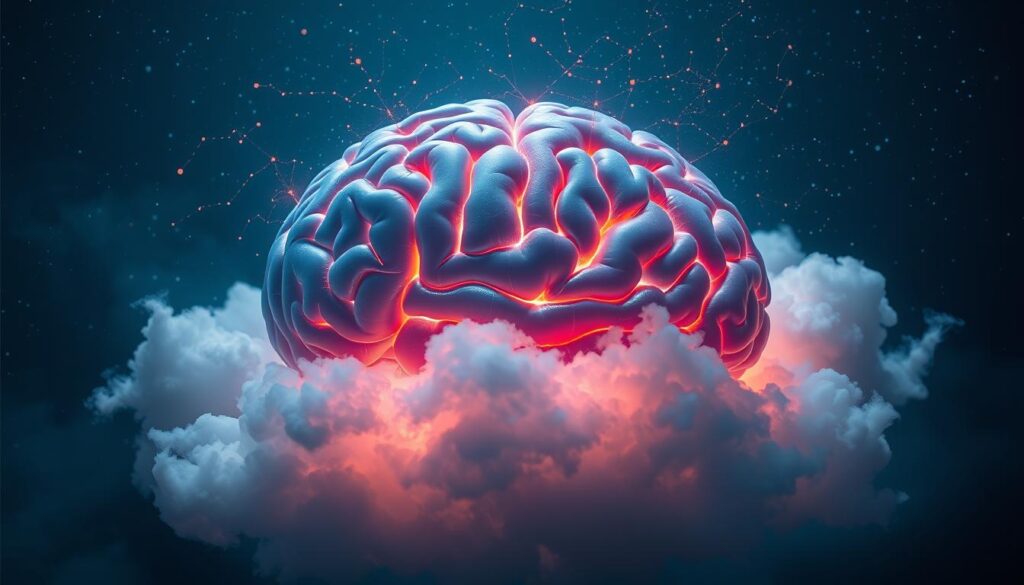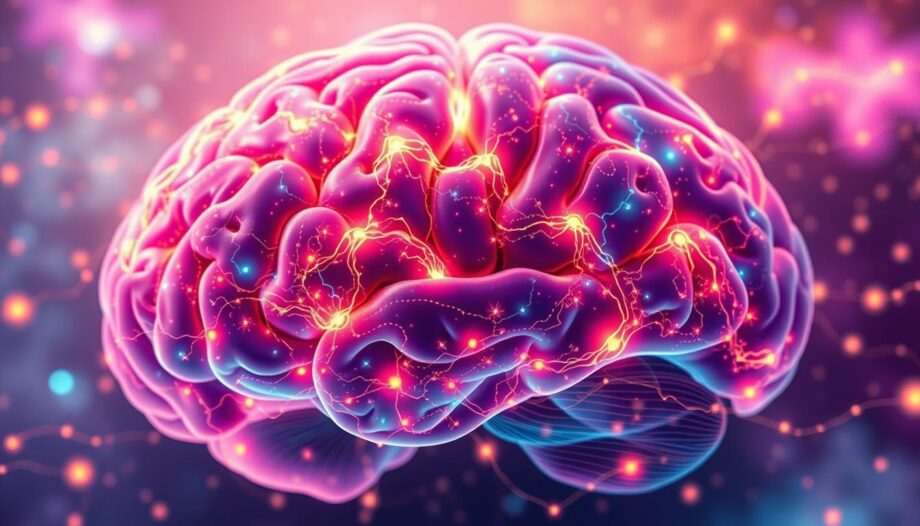Ever ponder the masturbation effects on brain chemistry? You're not the only one. This intimate act is more than a pleasure; it's a neurological spectacle. Solo exploration ignites a fireworks display in your brain, releasing a mix of chemicals that elevate your mood.
- Understanding Masturbation and Brain Function
- The Release of "Feel-Good" Hormones
- Masturbation's Impact on Stress and Anxiety
- The Connection Between Masturbation and Sleep Quality
- What Does Masturbation Do to the Brain?
- Cognitive Function and Masturbation
- Masturbation's Influence on Mood and Emotional Well-being
- The Brain's Reward System and Sexual Behavior
- FAQ
Dopamine and oxytocin play key roles, creating a sense of euphoria and connection. These changes can make you feel relaxed, focused, and empowered. Let's explore how these solo moments can enhance your brain's function.
Curious about the link between masturbation and brain activity? It's not just about physical pleasure. Your brain undergoes significant transformations during and after self-love. These changes can lead to stress relief, improved sleep, and enhanced cognitive function.
Key Takeaways
- Masturbation releases a cocktail of feel-good hormones in your brain
- The brain's reward system gets activated during solo play
- Self-love can help reduce stress and anxiety
- Masturbation may improve sleep quality and cognitive function
- Regular self-pleasure can contribute to overall sexual health
Understanding Masturbation and Brain Function
Your brain is a fan of self-love, and masturbation is its favorite way to celebrate. It's a party for your neural pathways, with the pleasure-reward center lighting up. This releases a mix of chemicals that make you feel incredible.
Dopamine, known as the "happiness hormone," floods your system, boosting motivation and desire for more pleasure. Oxytocin, or the "love hormone," promotes well-being and social bonding. Serotonin and endorphins also join in, lifting your mood and acting as natural painkillers.
Research reveals masturbation's impact on cognitive function is quite interesting. A 2016 study found that sexual activity, including solo play, improves cognitive function in older adults. It's like a brain workout! Masturbation can even help clear brain fog by stimulating endocannabinoids, potentially sharpening mental clarity.
- Boosts focus and concentration
- Increases mindfulness and self-awareness
- Enhances overall brain health
So, next time you're stressed or need a mental boost, remember self-love is what your brain craves!
The Release of "Feel-Good" Hormones
Engaging in masturbation sparks a flurry of activity in your brain. The effects on brain chemistry are truly remarkable. Your body unleashes a blend of "feel-good" hormones, leaving you feeling elated and serene.
Exploring the inner workings of your brain during solo activities reveals fascinating insights. Dopamine, the pleasure hormone, surges through your veins. This surge can induce a state of euphoria and contentment, akin to winning a personal jackpot.
Oxytocin, known as the "cuddle hormone," also plays a role. It promotes feelings of calm and satisfaction, akin to receiving a warm hug. Endorphins, the body's natural painkillers, further enhance this experience, making you feel almost invincible.
"Masturbation is like a natural pharmacy for your brain, dispensing a potent mix of feel-good chemicals that can boost your mood and well-being."
Seeking more ways to enhance your solo pleasure? Explore these top solo sex tips for vulva owners. Remember, masturbation is a healthy exploration of your body and a mood booster. So, indulge in self-love and let your brain chemistry work its wonders!
Masturbation's Impact on Stress and Anxiety
Feeling stressed? Your secret weapon might be closer than you think! Masturbation isn't just about pleasure - it's a powerful stress-buster too. When you engage in self-love, your brain unleashes a cocktail of feel-good chemicals. These can melt away tension and anxiety.
Let's talk brain changes from masturbation. Your body releases oxytocin, often called the "cuddle hormone," which helps lower cortisol levels. This means less stress and more relaxation. But that's not all - serotonin and endocannabinoids join the party too. They further boost your mood and ease tension.
Studies show masturbation and mental health are closely linked. A whopping 778 participants reported better sleep quality after solo play compared to partnered sex. Talk about a bedtime routine upgrade! And for the 50+ crowd, more frequent sexual activity (including masturbation) was linked to improved memory performance. Who knew staying sharp could be so fun?
"Masturbation can aid in improving self-esteem and body image," says Planned Parenthood.
So next time stress hits, consider some quality "me time." Your brain (and body) will thank you! Just remember, like all good things, moderation is key. If you feel masturbation is interfering with your daily life, don't hesitate to chat with a healthcare professional for guidance.
The Connection Between Masturbation and Sleep Quality
Ever wondered how masturbation impacts cognitive function and sleep? You're not alone! Many people use self-pleasure as a natural sleep aid. A 2019 study of 778 adults revealed some interesting findings about masturbation and brain activity.

More than half of the participants reported improved sleep quality after masturbating to orgasm. In fact, 54.1% said it enhanced their sleep quality, while 47.4% found it easier to fall asleep. This suggests a strong link between sexual release and better rest.
Why does this happen? When you climax, your body releases hormones like oxytocin and prolactin. These chemicals promote relaxation and satisfaction, making it easier to drift off. Interestingly, prolactin levels are highest during sleep and lowest during the day.
But here's a juicy tidbit: sex with a partner might be even more effective for. Studies show a fivefold increase in prolactin after intercourse compared to solo play. So while masturbation can help, partnered sex might be the ultimate sleep booster!
Remember, good sleep is key for overall well-being. Most adults need 7-9 hours nightly. By improving your sleep through masturbation, you're potentially boosting your cognitive function too. It's a win-win situation for your brain and body!
"Masturbation is nature's sleeping pill - free, fun, and fantastically effective!"
What Does Masturbation Do to the Brain?
Masturbation sets off a complex series of chemical reactions in your brain. It profoundly affects brain chemistry, releasing a mix of hormones that boost your mood and reduce stress. The brain's reward system is activated, flooding your body with dopamine, the hormone of happiness.
Oxytocin, released during arousal, acts as a natural stress-reliever, countering cortisol's effects. This hormone not only fosters bonding but also regulates stress responses. Orgasm triggers the release of endorphins, which are nature's painkillers, providing relief similar to opioids.
The connection between masturbation and neural pathways is deep. Regular self-stimulation can enhance these pathways, potentially boosting sexual function and satisfaction. A 2009 study showed that frequent vibrator use is associated with a high sex drive and positive sexual experiences, highlighting masturbation's benefits for the brain and body.
"Masturbation can help individuals discover what is pleasurable, potentially improving their sex lives."
After orgasm, serotonin and prolactin are released, aiding in relaxation and promoting better sleep. These neurochemical changes explain the post-masturbation sleepiness. It's your brain's way of rewarding you for this natural and healthy activity.
- Boosts self-esteem
- Reduces stress and anxiety
- Improves sleep quality
- Enhances mood
While masturbation offers many benefits, experiences can vary. Some may feel guilt or shame due to societal or religious views. Remember, masturbation is a personal choice. Its effects on your brain and body are largely positive when practiced in moderation.
Cognitive Function and Masturbation
Masturbation has surprising effects on cognitive function. A study of 3,777 older adults revealed interesting connections between sexual activity and brain health. Contrary to outdated myths, masturbation may actually enhance mental acuity.
Brain changes from masturbation include the release of dopamine, a feel-good chemical. This can improve focus and concentration. Prolactin, another hormone, has protective effects on brain cells. It may help shield your brain from stress-related damage.
Research indicates that sexual activity boosts memory and number skills in adults over 50. The stress relief from self-love could be behind these cognitive benefits. Yet, too much might leave you temporarily worn out and fuzzy-headed.
Interestingly, older folks with memory issues were just as likely to engage in sexual activity as those without. Men and women with cognitive decline masturbated less often. For coupled-up seniors, brain health didn't seem to affect their shared intimate moments.
"Sex is an important part of life for most older adults. A good romp - solo or partnered - could give your brain a beneficial boost."
So next time you're feeling foggy, a little self-pleasure might be just what the doctor ordered. Your brain will thank you!
Masturbation's Influence on Mood and Emotional Well-being
Masturbation can profoundly affect your mood and emotional state. Engaging in self-pleasure triggers the release of various feel-good chemicals. These include dopamine, serotonin, and oxytocin. Dopamine is key in the brain's reward system, making pleasurable activities more appealing. Serotonin helps manage your mood, while oxytocin fosters bonding and relaxation.
The relationship between masturbation and mental health is multifaceted. For many, it acts as a natural stress reliever. The oxytocin released during orgasm can decrease cortisol levels, leading to a sense of calm. This is why some people find it easier to fall asleep after self-pleasure.
Masturbation and dopamine levels are intricately connected. The dopamine surge during self-pleasure can enhance your mood and self-esteem. Studies indicate that frequent masturbation in women can lead to happier marriages. Yet, it's vital to strike a balance. Excessive masturbation might reduce your brain's sensitivity to natural rewards.
"Masturbation is a normal and healthy sexual activity with few side effects. The benefits outweigh the risks for most people."
While masturbation can positively affect your emotional well-being, some may feel guilty or anxious. These feelings often arise from cultural or religious beliefs. If you're struggling with negative emotions about masturbation, seeking help from a mental health professional could be beneficial.
The Brain's Reward System and Sexual Behavior
Your brain harbors a secret: it craves self-love. Solo activities trigger a reward system explosion, akin to a Christmas tree aglow. This is due to dopamine, a neurotransmitter that orchestrates pleasure. It's the key to unlocking your brain's joy.
Masturbation's impact on brain chemistry is profound. It activates the mesolimbic dopamine system, similar to craving pizza. This system ensures you seek sexual pleasure. Oxytocin, the "cuddle hormone," also plays a role, making you feel cozy, even alone.
Research reveals that ejaculation lights up brain areas. The ventral tegmental area and lateral central tegmental field are among them. So, self-exploration not only brings joy but also stimulates your brain. Science confirms that pleasure is a brain workout.
FAQ
What does masturbation do to the brain?
Masturbation triggers the release of hormones and neurotransmitters linked to pleasure, reward, and relaxation. These include dopamine, oxytocin, serotonin, endorphins, and others. These chemical changes can lead to various physical and psychological effects. These include reduced stress, improved sleep, pain relief, enhanced mood, and better focus.
How does masturbation affect brain function?
Masturbation activates the brain's pleasure-reward center, triggering the release of various hormones and neurotransmitters. Dopamine, known as the "happiness hormone," plays a key role in motivation and reward-seeking behavior. Oxytocin, the "love hormone," promotes social bonding and well-being. Serotonin mediates happiness and satisfaction, while endorphins act as natural painkillers. These chemical changes in the brain can influence mood, stress levels, and cognitive function.
What "feel-good" hormones are released during masturbation?
Masturbation stimulates the release of several "feel-good" hormones and neurotransmitters in the brain. These include dopamine (associated with pleasure and reward), oxytocin (promoting bonding and relaxation), endorphins (the body's natural painkillers), prolactin (regulating stress responses), and endocannabinoids (involved in pain regulation and mood enhancement). These chemicals contribute to a sense of well-being and relaxation.
How can masturbation help with stress and anxiety?
Masturbation can significantly reduce stress and anxiety levels. The release of oxytocin during sexual activity lowers stress hormones like cortisol, promoting relaxation. Prolactin, another hormone released during masturbation, helps regulate stress responses. The release of endorphins and endocannabinoids can also contribute to stress relief and pain reduction, potentially providing relief from migraines and cluster headaches.
Does masturbation improve sleep quality?
Yes, masturbation can positively impact sleep quality. The release of oxytocin and endorphins during sexual activity promotes relaxation and can help reduce stress and blood pressure, making it easier to fall asleep. Many people report that masturbation helps reduce the time it takes to fall asleep and improves overall sleep quality.
How does masturbation affect cognitive function?
Masturbation may have positive effects on cognitive function. The release of dopamine during sexual activity can improve focus and concentration. Prolactin has neuroprotective effects, potentially reducing neural damage in response to stress. A study found that sexual activity increased recall and number sequencing in older adults. Excessive masturbation may lead to temporary fatigue, potentially affecting attention and focus in the short term.
What is the impact of masturbation on mood and emotional well-being?
Masturbation can have a significant impact on mood and emotional well-being. The release of dopamine, serotonin, and endorphins during sexual activity can contribute to feelings of happiness, satisfaction, and reduced stress. Oxytocin promotes feelings of bonding and well-being. Regular masturbation has been associated with improved self-esteem and body image. Some individuals may experience negative emotions related to masturbation due to societal or religious beliefs.
How does the brain's reward system relate to masturbation?
Masturbation activates the brain's reward system, mainly through the release of dopamine. This neurotransmitter is associated with pleasure, motivation, and reward-seeking behavior. The activation of the reward system during sexual activity reinforces the behavior, potentially leading to improved sexual function and satisfaction. The release of oxytocin during masturbation also plays a role in the reward system, promoting feelings of bonding and well-being.
- Understanding Masturbation and Brain Function
- The Release of "Feel-Good" Hormones
- Masturbation's Impact on Stress and Anxiety
- The Connection Between Masturbation and Sleep Quality
- What Does Masturbation Do to the Brain?
- Cognitive Function and Masturbation
- Masturbation's Influence on Mood and Emotional Well-being
- The Brain's Reward System and Sexual Behavior
- FAQ


















